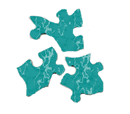Emma B.: Woman With Mental Illness
Phyllis M. Connolly RN, PMHCNS-BC, PhD
Professor, School of Nursing
San Jose State University
San Jose, California
Information Obtained during the First Visit/Encounter:
A psychiatric home care nurse visited Emma B., age 62, in the licensed board and care facility where she lived for the past two years. Her medical diagnosis was schizophrenia. She was facing a possible eviction because of personal hygiene problems. The administrator told the nurse that he was concerned about Emma's hygiene and questioned if her psychiatric medications were controlling her symptoms.
When the nurse stopped at Emma's room, she invited the nurse in to visit. Emma's clothes were wrinkled and soiled with food, her hair was matted, and her finger nails were long and dirty. Broken handbags were everywhere. Emma continued to look through her handbags as if she was searching for something. She moved about the room, picked things up, then looked distracted and moved to the next handbag. Emma frequently stopped and argued with herself. Her mood shifted rapidly during the visit. She asked the nurse, "Are you my new conservator? You look like one. They are all after my money, and try to keep me from my family. As soon as my boyfriend gets a new job, we will get out of this place. They want to throw me out anyway."
The nurse asked Emma if she knew the purpose of the visit. Emma suspected that other residents complained about her; she had not taken a shower because the bathroom was always occupied. "I know showering is one of the rules and they said they could even throw me out, but it's not my fault." The nurse confirmed that Emma's personal hygiene was a problem and offered to help. Emma said she tried to take a shower but had difficulty gathering her soap, towel, and clothes. Sometimes she had trouble concentrating because she "heard voices" while she was in the shower. "I'm not sure when I showered or changed clothes last." Emma also reported that a new resident banged on the bathroom door and demanded that she leave. The nurse asked if a mental health worker (paraprofessional) could help her assemble her supplies and prevent the other resident from disrupting her shower. She agreed to try.
The nurse asked to see Emma's medications. She identified them correctly, but said she forgot to take them sometimes. She was willing for the mental health worker to help her. She indicated that the doctor and nurse practitioner had changed her medications because they were not effective. "They keep telling me not to drink so much coffee and coke—something about the medications." The nurse briefly explained the effect of caffeine, and asked if she had tried decaffeinated drinks. Emma responded that she had not.
The nurse left Emma and talked to the administrator. They arranged assistance with medications, showering, changing clothes, and laundry, and scheduled an appointment to evaluate Emma and her medications. The administrator said that decaffeinated coffee and coke were available. When the nurse returned to Emma's room, she thanked the nurse for helping.
Application of the Omaha System:
DOMAIN: PSYCHOSOCIAL
Problem: Mental health (high priority)
Problem Classification Scheme
Modifiers: Individual and Actual
SIGNS/SYMPTOMS OF ACTUAL:
loss of interest/involvement in activities/self-care
narrowed to scattered attention/focus
irritable/agitated/aggressive
purposeless/compulsive activity
difficulty managing stress
delusions
hallucinations/illusions
mood swings
Intervention Scheme
Category: Teaching, Guidance, and Counseling
TARGETS AND CLIENT-SPECIFIC INFORMATION:
interaction (began to establish a therapeutic relationship)
signs/symptoms-mental/emotional (reviewed symptoms)
Category: Case Management
TARGETS AND CLIENT-SPECIFIC INFORMATION:
medical/dental care (scheduled evaluation appointment)
Category: Surveillance
TARGETS AND CLIENT-SPECIFIC INFORMATION:
signs/symptoms-mental/emotional (activity, moods shifts, hallucinations, and client reports)
Problem Rating Scale for Outcomes
Knowledge: 2-minimal knowledge (persistent symptoms interfered with reality)
Behavior: 2-rarely appropriate (seldom stopped searching/pacing but was eating and sleeping)
Status: 2-severe signs and symptoms (pacing, described delusions and hallucinations)
DOMAIN: HEALTH-RELATED BEHAVIORS
Problem: Personal care (high priority)
Problem Classification Scheme
Modifiers: Individual and Actual
SIGNS/SYMPTOMS OF ACTUAL:
difficulty laundering clothing
difficulty bathing
foul body odor
difficulty shampooing/combing hair
difficulty bushing/flossing/mouth care
unwilling/unable/forgets to complete personal care activities
Intervention Scheme
Category: Teaching, Guidance, and Counseling
TARGETS AND CLIENT-SPECIFIC INFORMATION:
personal hygiene (what she can and cannot do)
Category: Case Management
TARGETS AND CLIENT-SPECIFIC INFORMATION:
paraprofessional/aide care (arranged assistance with shower, changing clothes, and laundry)
Category: Surveillance
TARGETS AND CLIENT-SPECIFIC INFORMATION:
personal hygiene (cleanliness, adequacy of assistance)
Problem Rating Scale for Outcomes
Knowledge: 2-minimal knowledge (acknowledged need for personal hygiene)
Behavior: 1-not appropriate: (cannot start/complete personal hygiene)
Status: 1-extreme signs/symptoms: (body and clothing unclean)
Problem: Medication regimen (high priority)
Problem Classification Scheme
Modifiers: Individual and Actual
SIGNS/SYMPTOMS OF ACTUAL:
inadequate system for taking medication
inadequate medication regime
Intervention Scheme
Category: Teaching, Guidance, and Counseling
TARGETS AND CLIENT-SPECIFIC INFORMATION:
medication action/side effects (drink less caffeine because it decreases effectiveness of psychotropic medications)
medication administration (needed to take all doses as scheduled)
Category: Case Management
TARGETS AND CLIENT-SPECIFIC INFORMATION:
medical/dental care (scheduled appointment to have medications evaluated)
paraprofessional/aide care (mental health worker will help Emma)
Category: Surveillance
TARGETS AND CLIENT-SPECIFIC INFORMATION:
medication administration (reports from client, mental health worker, and administrator)
Problem Rating Scale for Outcomes
Knowledge: 3-basic knowledge (receptive; knew names of medications, need to take)
Behavior: 2-rarely appropriate: (missed some of medications; needs consistent administration)
Status: 2-severe signs/symptoms: (symptoms of mental illness evident)
